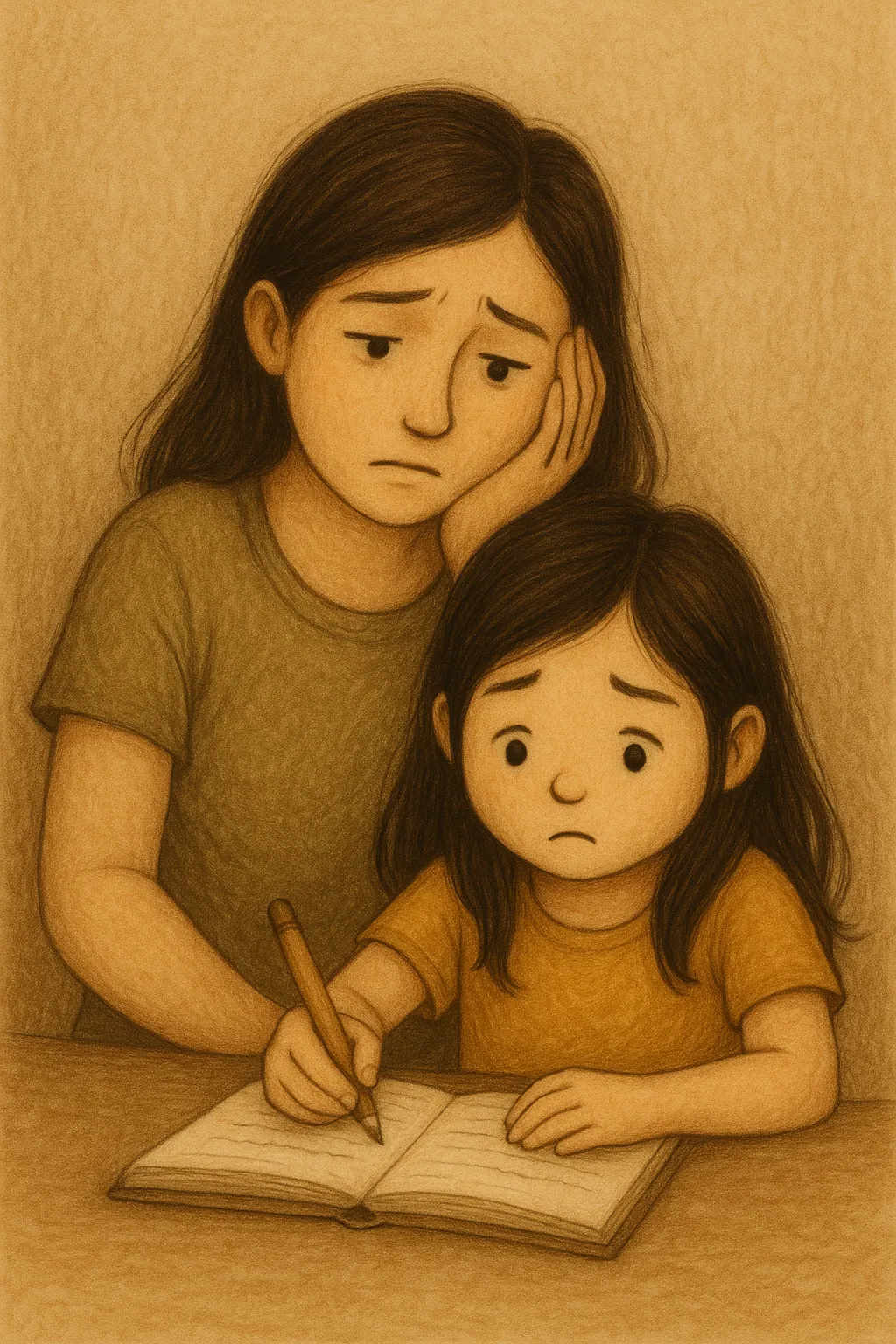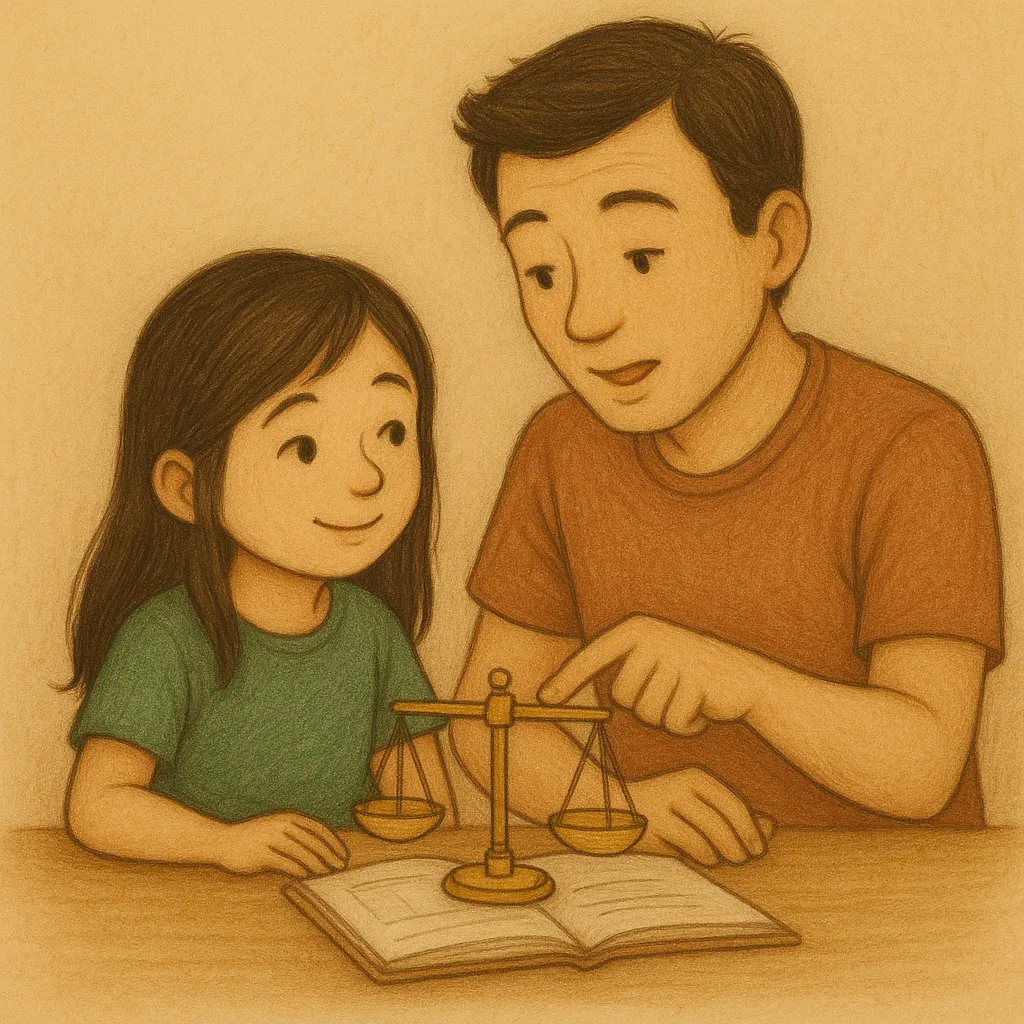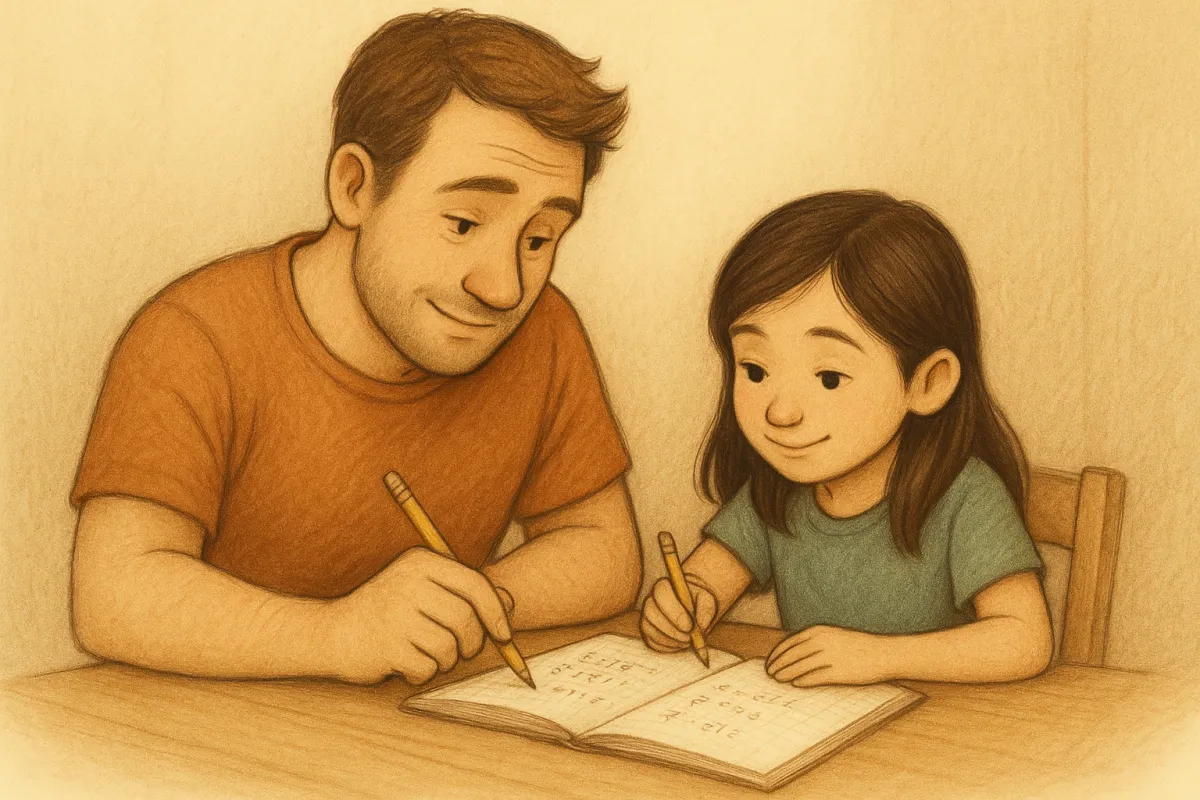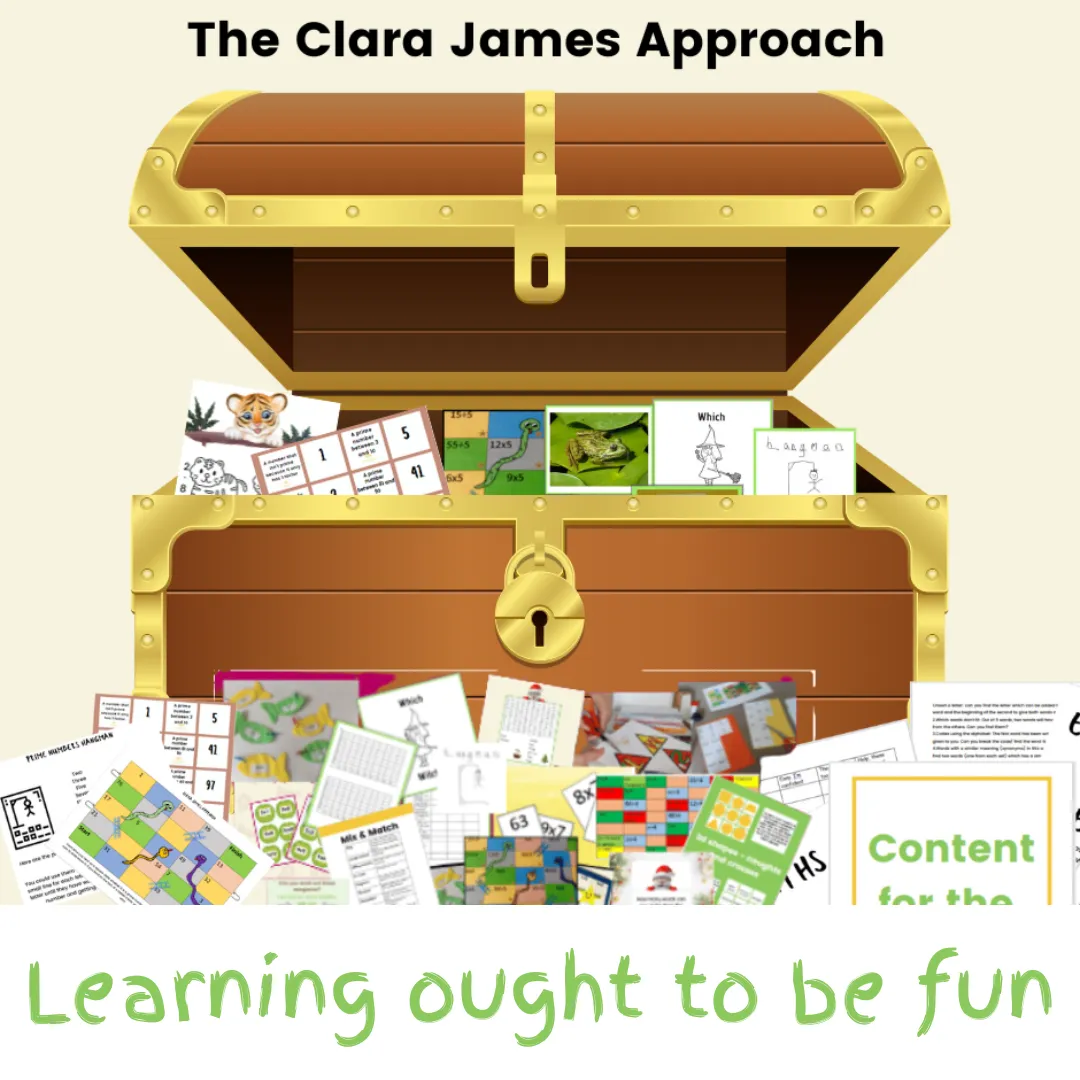
If you'd rather watch this as a video instead of reading it, click here:
Will I Confuse My Child if I Explain Things Differently?
One of the most common comments I have heard from parents over the past decade is the fear that if they explain things differently to how their teacher has explained it, it will just confuse their child more.
“I want to help… but what if I just confuse them even more?”
It’s a completely valid worry—especially when you’re trying to be supportive without stepping on the toes of your child’s teacher.
But here’s the thing…
Sometimes a fresh perspective is exactly what a child needs to make something click.

One of the most common fears that parents seem to have is that if they explain things differently to how their teacher has explained it, it will just confuse their child more.
💬 A Personal Story
A lot of parents live in fear that if they attempt to explain something to their child, it will confuse them. But sometimes we need things presented in a different way for them to become relevant and make sense to us.
I remember as a child sitting in a GCSE maths class and the teacher was explaining something to us. I had no idea what she was talking about and, unfortunately, she chose me to answer her question.
I sat and looked at her blankly before giving her an answer with only the slightest glimmer of hope that it might be right.
No chance. She explained it again using the exact same words. She asked me again for the answer, but I was still none the wiser. She might as well have been talking in a foreign language. I had no clue.
With a roll of her eyes, she explained it for the third time in the exact same way. I still had no idea what she was on about. But, now with a bright red face and a fear that the tears I could feel welling up inside would escape down my cheeks, she moved on to someone else. I felt like a complete fool in front of the whole class.
That night I sat with my dad who used the idea of balancing scales. It was something concrete I could visualise, and I got it. It was simple. He wasn’t a teacher; he just had the patience to explain it to me in a way that I understood it.
That has stayed with me for a long, long time.
It wasn’t magic—it was just a different approach.

Sometimes a different approach is all that is needed to help to create that Eureka moment
🌱 The Pros of Explaining Things Differently
✅ It gives your child a second chance to “get it"
Not every brain processes information the same way. A new perspective can turn confusion into clarity. A few years back I worked with a lad. He was in his 20s and was retaking his GCSE maths for about the third time. He was on the autistic spectrum and took things quite literally.
Whenever I have explained fractions in the past I have related it to food. So, I might say imagine we have a cake. We cut it into two equal parts. You take one part, so you have half: 1 of the 2 equal sized bits.
Happy?
Now imagine we cut the cake into 4 equal parts instead of 2. Ok?
You again take 1 part.
This time you have ¼. One part out of 4.
Still happy?
We continued like this for a couple more times then, he suddenly stopped me and pointed out that if I cut the cake too small it would crumble!
I had never considered this before, but to him it was a key point that we couldn’t move on from. As much as I tried to move away from the cake and focus on something else, he needed to consider it and ponder the consequence of the crumbs.
Was the explanation wrong? In theory no, but for him yes. And that’s the thing—it’s not about correcting what has been said by someone else, it’s about finding the explanation that is right for the person you are working with.
✅ It builds confidence
When children understand something they once struggled with, they start to believe they can learn. That shift is powerful.
Many children that we work with, for example, will state that they don’t get algebra. They can’t do algebra, it’s pointless. Why do they use letters in maths?
I was chatting to one of our maths tutors the other day and he was explaining how he sometimes plays a game with the kids he’s working with.
“I’m going to think of a number. I’d like you to tell me what that number is. The number plus 5 is 10. What is my number? 5. Yes, perfect…”
After a few rounds, he introduces the idea of calling the mystery number x. Suddenly, they realise that algebra is just a game of finding unknown numbers—and the sudden confidence in their eyes as they light up. They’ve gone from “I can’t do this” to “Oh, that’s all it is?”.
That moment of clarity can change not just their maths but their self-belief.
✅ It models flexibility
Hearing ideas framed in different ways helps children develop problem-solving skills—and trust that there’s more than one way to understand something.
For example, I once worked with a child struggling with spelling. The teacher had explained phonics rules, but it wasn’t clicking. Instead, we played a silly memory game linking tricky spellings to funny pictures. It worked—and, more importantly, the child learned that trying different approaches was part of learning, not a sign of failure.
⚠️ What to Keep in Mind
Offering a different explanation is a powerful approach, but there are a few things to be mindful of:
❌ Don’t try to “correct” the teacher
Aim to build on what they’ve learned, not contradict it. You might say:
“I know your teacher explained it this way. Would it help if we tried looking at it a little differently?”
Real-life experiences can also help: if you’re exploring measurement, you might say, “Instead of imagining a giraffe, think about the size of your school bus.” Something they can actually visualise makes it more concrete.
❌ Don’t feel pressure to be perfect
You don’t need all the answers. Even just saying, “Let’s figure it out together” teaches your child that learning is a process and mistakes are part of it.
When adults don’t know everything, it reassures children that it’s normal not to have instant answers. Teenagers especially need this reminder when they feel like the “only one” who doesn’t get it.
By working as a team, you build confidence and help them see they’re not alone.
❌ Know when to pause
If your child seems overwhelmed, it’s okay to step back. Sometimes it’s better to try again another day or ask their teacher or tutor for support.
For example, if they’re tired and frustrated, you might go for a short walk, do something fun together, or just change the subject. You’ll often come back fresher and more open to new ideas. Always aim to end on a high and praise their effort.

By working as a team, you build confidence and
help them see they’re not alone.
❤️ Final Point
Explaining something differently doesn’t mean you’re doing it “wrong.” It means you’re trying to meet your child where they are.
And that effort—your patience, your care, your willingness to help—matters more than you know.
So, will you confuse your child if you explain things differently?
The truth is, confusion doesn’t come from trying something new—it comes from never finding the explanation that fits. By offering another way, you give them that chance.
What’s next?
if you’d like a little extra support while you’re helping your child at home, that’s exactly why I created the Clara James Approach. Inside, you’ll find simple, practical resources you can use straight away, plus a monthly Zoom call where we can chat things through, and a supportive
Facebook group where you’ll never feel like you’re on this journey alone. Because sometimes, just knowing there are other people walking the same path makes all the difference.
Copywrite: Clara James Tutoring 2025

